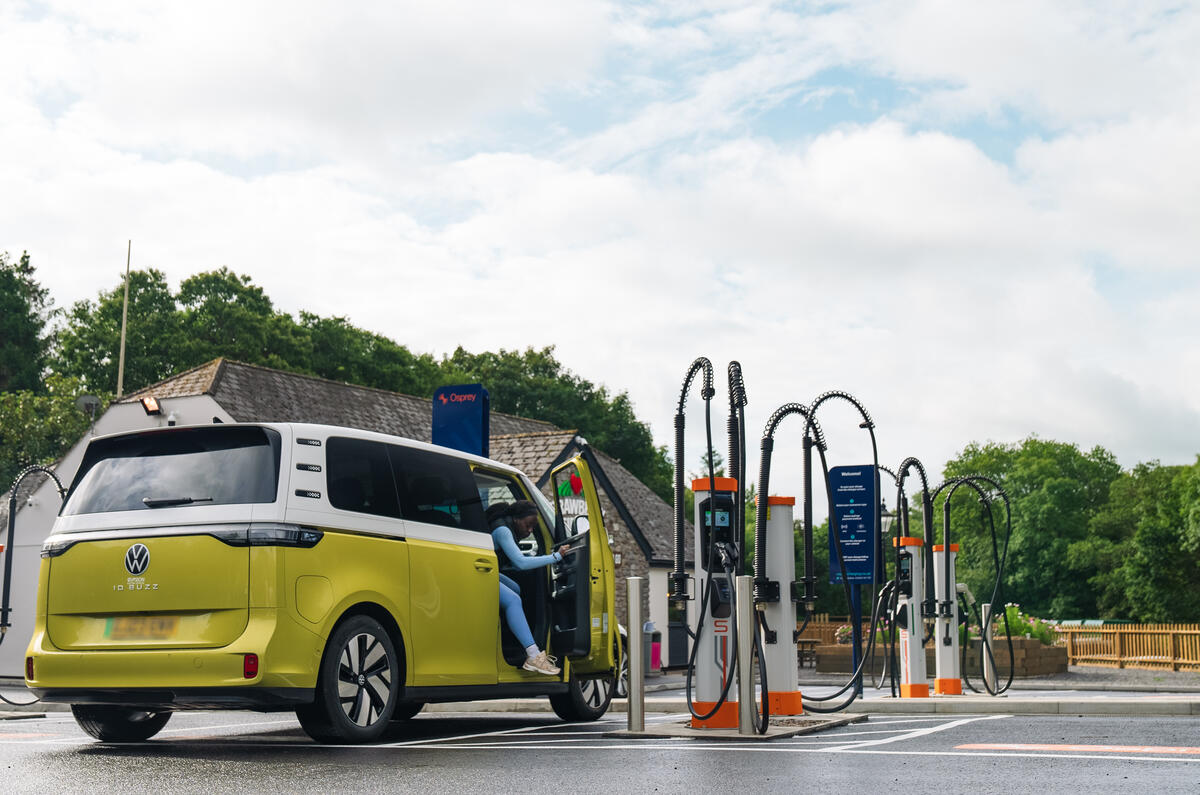The biggest loser from the UK government's expected introduction of ‘pay-per-mile’ road pricing as a way of taxing electric vehicles will ultimately be the government itself.
While in the short term it is very much car makers that need a rapid acceleration in EV sales (as they are on the hook for fines for missing sales targets set out in the government’s ZEV mandate), in the long term it is the government that will face legal action if it fails in its pledge for the UK to be net-zero by 2050.
This is what all of its EV policies are ultimately tied into. The UK committed to be net-zero for carbon emissions by 2050, and it introduced a ban on the sale of non-electric vehicles by 2035 as part of that. Given cars tend to stay on the road for around 15 years in the UK, the theory is the UK car parc will be largely EV by 2050, and cars will have done their bit in reducing emissions for the government in its legally binding net-zero pledge.
Chancellor Rachel Reeves’ latest taxation policy would be, if introduced, the latest in a series of contradictory head-scratchers from successive governments in their approaches to EVs.
This will hurt still fragile consumer confidence in EVs and risks undermining their continued uptake. Putting any notion of the fairness or cost of the tax aside, simply having the additional tax in place is a barrier to their adoption and gives hesitant prospective EV buyers another reason to delay the switch the government needs them to make.
All of this comes at a time when EV uptake is increasing, following the government's introduction of the Electric Car Grant (ECG), which gives up to £3750 off the price of qualifying EVs. Last month, the market share of EVs increased by almost five percentage points year on year to 25.4% – a figure that, with various credits and small print in the ZEV mandate scheme, will put the industry on track for compliance.
Next year, the market share needs to be at 33%, so momentum needs to be maintained – but road pricing will hit consumer confidence, causing future crashes.
The pot of money for the ECG is also not bottomless and is widely expected to run out long before its 2029 end date. It’s quite likely that when the proposed pay-per-mile tax is introduced in 2028, a new EV will be more expensive to buy and run than one is now.
The ZEV mandate requires a 52% market share by 2028, more than double that of today. It feels a long way away, and for Reeves and the rest of the government it’s a big problem – one all of its own making.








Join the debate
Add your comment
EV drivers should be paying more tax and, tax per mile seems fair. The road network costs a huge amount of money to maintain. It is right that those who use the roads, should pay for them, why should EV drivers get off almost scot-free, especially if they can mainly charge their car at home?
You have missed the point. The government needs to fund short term incentives to stimulate demand and turn them down slowly after mass adoption. Sales of EVs are not great at the moment and the residuals are on the floor . Norway did it properly hence why 90% of the population drove EVs.
You have missed the point. The government needs to fund short term incentives to stimulate demand and turn them down slowly after mass adoption. Sales of EVs are not great at the moment and the residuals are on the floor . Norway did it properly hence why 90% of the population drove EVs.l
I don't understand this article. I'm looking for the reason why the Government are going to be the biggest loosers and can't find it. And loose in what terms - monetary? environmental?
Who's going to take legal action against the Gov if they miss targets? I'd have thought any potential objectors first problem would be the definition of Net Zero.
EV's only make sense if charged at home. Charging at home means an EV costs a fraction to fuel compared to an ICE. So even if you apply a 3p per mile tax, the EV will remain far cheaper to fuel. So why are potential EV owners going to stick with ICE because of this tax? I don't understand what their problem is. If EV's are to become more expensive to run, does anyone believe ICE isn't going to become more expensive too? All Gov need to do ( and I reckon they will at budget ) is increase fuel duty.
Now if the objection is an additional tax being applied to PHEV users, that's different, and I'd agree with that. Will they be charged on their annual mileage meaning paying fuel tax at the pump, paying VAT on top of that tax at the pump, and now paying an EV tax on miles used using their ICE? Or will they be taxed only on miles covered running in EV mode. If so, how are they going to work out how many miles a PHEV driver coveres on each power source?
Apparently fossil fuels get more subsidies than renewables, this is both UK and worldwide. But the subsidies are more to the companies for fossil fuels and more towards the consumer for renewables. Reducing fossil fuels will reduce the tax intake from cars usage, but also reduce the need to subsidise fossil fuels, although some of this is dealing with the cleanup afterwards, which will go on for a long time.
The justification of such high fuel taxes was the harm the fuel creates, but this is much less of a problem for EVs. And EVs are already paying tax in the form of VAT.